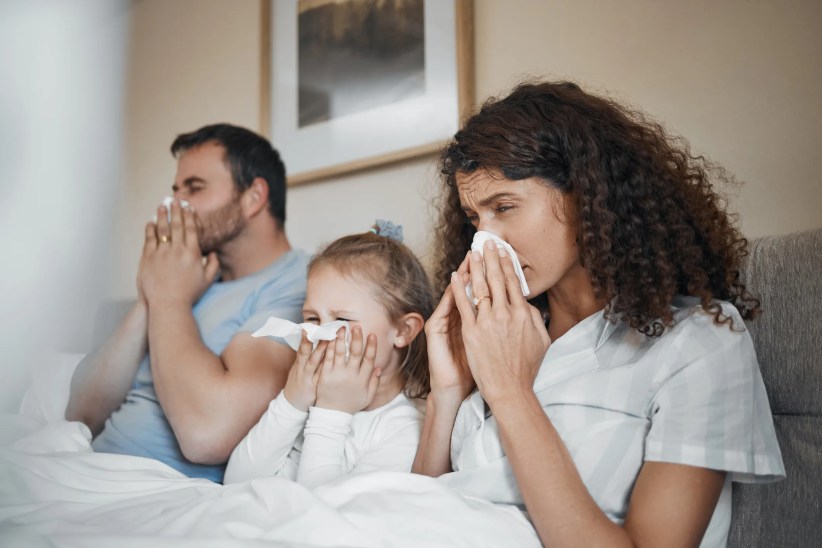Whether they’re furry, feathered, or funny looking, pets offer more than companionship for kids. The health benefits of owning a pet include boosting self-confidence and emotional well-being, and teaches kids responsibility.
Bringing a pet into your family is a big decision, and one that requires your whole brood to be on board. Caring for an animal isn’t easy work all the time, but it can be truly rewarding. Here, experts weigh in on the numerous health benefits of pets for kids that go far beyond having a four-legged friend to play fetch with.
Pets give kids a confidence boost.
Dealing with a shy child? A pet might be the solution to get your kid’s personality to peek through. Many children who are hesitant to speak up around peers, in a classroom, or even with other family members can sense that animals are nonjudgmental, giving them a boost of confidence to be more vocal or participate in social situations. “Animals are great listeners who are always there for us,” says Jeanne Clune, behavior and enrichment coordinator of the SPCA of Westchester. “Working with pets provides multiple learning opportunities in understanding and teaching another being. This inspires confidence and creative problem-solving skills in children.”
A boost in these skills is especially seen in children on the autism spectrum who have service dogs. The relationship between dog and owner can “help increase communication and social skills, including initiating and maintaining conversations, increased eye contact, and opportunities to practice conversation skills with familiar and unfamiliar partners,” according to Autism Service Dogs of America.
Pets help boost kids’ emotional well-being.
Beyond boosting confidence, developing a close connection with a pet can have other positive effects on a child’s emotional health. “Working with animals gives kids the opportunity to experience unconditional love from another being,” Clune says. That absolute love can help a child build emotional strength that will help them through more trying times. Clune explains this is why dogs are used to help children within the judiciary system. Court dogs, also referred to as comfort dogs, are used to help children testify about child abuse and other trauma that they are otherwise unable to share with parents, police officers, or social workers, she says. “They are our best friends when we feel it is unsafe to share with another human.”
Lizanne Fiorentino, president of the board of directors for Hi Tor Animal Shelter in Pomona, adds, “Pets can help reduce loneliness, anxiety, and anger in children, who talk to them as they do to their stuffed animals.”
Pets teach kids to take responsibility.
Pets, just like humans, require love and care in order to thrive. Animals depend on their owners to meet their basic needs. “With a pet in the house, even the youngest toddler can pick up pointers about responsibility and learn about the importance of being kind and gentle,” Fiorentino says. Children, she says, “realize that pets, just like people, need food, shelter, exercise, and love,” all valuable lessons for kids to learn at an early age.
Steve Gruber, director of communications at the Mayor’s Alliance for NYC’s Animals, says caring for a pet is an invaluable experience, especially at a young age. “For some kids, it’ll be the first time they’ll have been responsible for a living being,” he says. Seeing how your child reacts to taking on responsibility for a living creature may help you understand your child’s social and emotional strengths better, too.
Pets teach kids about the circle of life.
Losing a pet is like losing a member of your family, and while it’s hard to talk about, children who experience this loss learn a great deal about life. “The end of a pets’ life could be a child’s first experience with death,” Gruber says. “It’s something we need to accept, learning about that part of life.” Coping and healing from the loss of a pet positions children to better understand the cycle of life, and when the time comes to deal with another death in the family, they’ll be better equipped to understand their emotions during that difficult time.
Ready to adopt a pet?
From emotional support to teachable moments, the health benefits of owning a pet are vast and can have a positive impact on your family. If you’re ready to bring a pet into your home but you’re not sure where to start, Gruber suggests attending an adoption event or visiting a local shelter, where your family can meet a variety of animals. Most important, he says, is that every member of the family is involved in the process. “The whole family should meet the animal and help with the selection to understand who they’re adopting,” he says. “Adoption is a lifetime commitment for the life of the pet.”
In the end, though, it’s a lifetime commitment that will benefit your family just as much as the animal you’re adopting.
Also See:
Operation ResCUTE “Paws” it Forward





















